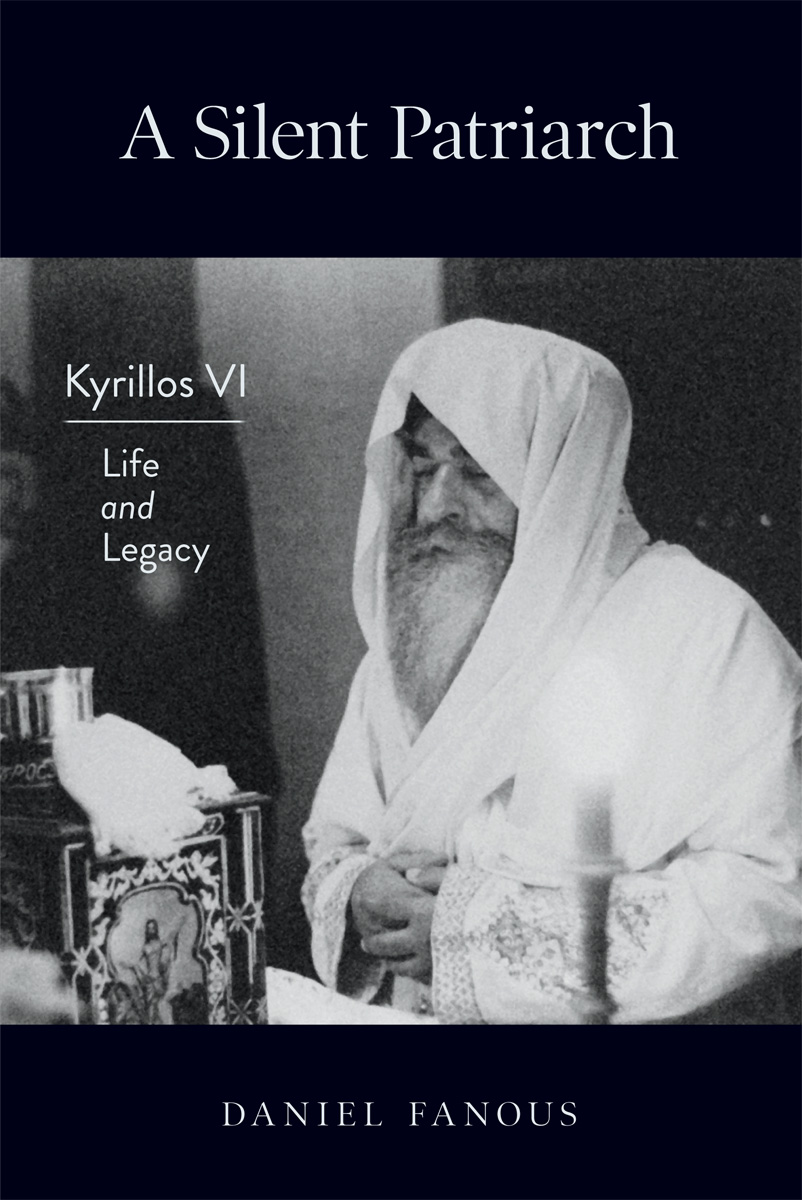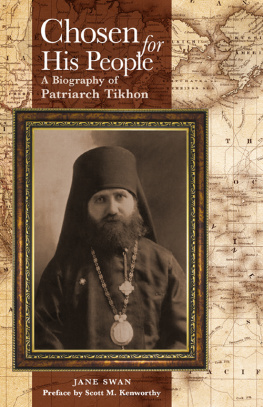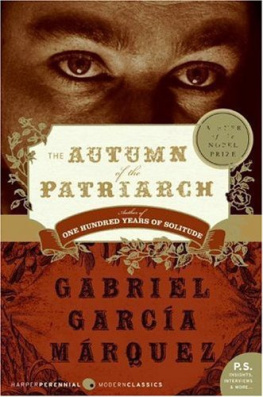Daniel Fanous - A Silent Patriarch
Here you can read online Daniel Fanous - A Silent Patriarch full text of the book (entire story) in english for free. Download pdf and epub, get meaning, cover and reviews about this ebook. publisher: St Vladimirs Seminary Press, genre: Religion. Description of the work, (preface) as well as reviews are available. Best literature library LitArk.com created for fans of good reading and offers a wide selection of genres:
Romance novel
Science fiction
Adventure
Detective
Science
History
Home and family
Prose
Art
Politics
Computer
Non-fiction
Religion
Business
Children
Humor
Choose a favorite category and find really read worthwhile books. Enjoy immersion in the world of imagination, feel the emotions of the characters or learn something new for yourself, make an fascinating discovery.

- Book:A Silent Patriarch
- Author:
- Publisher:St Vladimirs Seminary Press
- Genre:
- Rating:3 / 5
- Favourites:Add to favourites
- Your mark:
- 60
- 1
- 2
- 3
- 4
- 5
A Silent Patriarch: summary, description and annotation
We offer to read an annotation, description, summary or preface (depends on what the author of the book "A Silent Patriarch" wrote himself). If you haven't found the necessary information about the book — write in the comments, we will try to find it.
A Silent Patriarch — read online for free the complete book (whole text) full work
Below is the text of the book, divided by pages. System saving the place of the last page read, allows you to conveniently read the book "A Silent Patriarch" online for free, without having to search again every time where you left off. Put a bookmark, and you can go to the page where you finished reading at any time.
Font size:
Interval:
Bookmark:

A Silent Patriarch
Kyrillos VI (19021971)
Life and Legacy
Rev. Dr Daniel Fanous
st vladimirs seminary press
yonkers, new york

copyright 2019 by
st vladimirs seminary press
575 Scarsdale Road, Yonkers, NY 10707
1-800-204-2665
www.svspress.com
isbn 978-0-88141-650-3
All Rights Reserved
To my children, Chloe, Luke, and Mia:
May you see beyond the icons on the wall.
P ope Kyrillos VI, the 116th successor of the patriarchs of the Apostolic See of Alexandria, is a figure of great spiritual stature who was immersed in the depths of monastic life and a life of unceasing prayer. His patriarchate was characterized by authentic spiritual thought, faith, and manifest virtues. The history of his life grants him a well-attested place as both monk and patriarch. During his patriarchate the Virgin Mary appeared at her church in the suburb of Zeitoun in Cairo, appearing brilliantly for more than two years. He also brought back the relics of St Mark, the pure apostle and martyr, in addition to establishing in Cairo the largest cathedral in the Middle East.
I personally received a special blessing in that his sister, Mrs Shafia, was the principal of the Coptic school in Damanhur where I attended primary school (19601964). When I was sitting my final examinations (1969/1970), my mother received a special blessing from Kyrillos VI and a prayer for my future, and oh, how my family rejoiced! After I became patriarch in November of 2012, at the first meeting of the Holy Synod in 2013, we canonized Kyrillos VI as a saint forty-two years after his departure; I consider this a special grace in the first year of my service as patriarch.
We ask for his prayers and intercessions for our sakes, and I commend Rev. Dr Daniel Fanous for this important study, which I consider a scholarly and outstanding addition to the history of our Coptic Orthodox Church.
My sincere love and gratitude,
Pope Tawadros II
118th Pope of Alexandria and Patriarch of the See of St Mark
Cairo, 1st of June 2019
The Feast of the Lord Christs Entry into Egypt
... for you died, and your life is hidden with Christ in God.
Colossians 3.3
Y ouannis of Giza has yelled the men as they frantically knocked on the doors of the patriarchate, Bishop Youannis... has been shredded to pieces on the train tracks of Cairo! Dawood, the doorkeeper, flung the doors openonly to find himself set upon. The men bound the nearby guards and silenced the servants. Confusion embraced the patriarchate. Awakened by the commotion, the patriarch, Yusab II, emerged from his quarters. Torn between astonishment and disbelief, he stared at his would-be abductors. Yusab was forced to sign his abdication before being violently bundled into a waiting taxi, only narrowly escaping gunshotsaccording to one mildly sensational reportfrom security forces in pursuit. On that night, July 24, 1954, the elderly patriarch was abducted, as strange as it is to say.
When he was eventually found by the police at a monastery in Old Cairo, the Synod seemed to react with ambiguity. A year later they relieved Yusab of his duties and exiled him to a desert monastery. For almost four years there would be no patriarch upon the throne. The exile was a deeply tragic moment in the history of the Coptic Churchand yet, at the same time, an apt summation and embodiment of the previous half-century. So painful was that moment that it has, for the most part, been willfully ignored, rarely spoken of, and (somewhat inevitably) piously forgotten.
This is, regrettably, where this story must begin. To deny, forget, or ignore this mournful periodwhich might well have otherwise brought Coptic Christianity to its kneesis to do an injustice to the seismic shift in the Church before and after Pope Kyrillos VI (19021971). Kyrillos inherited a broken, weeping, and profusely bleeding Church from his abducted and later exiled predecessor. Yet, just twelve short years later, Kyrillos stood at the head of a nearly impossible spiritual revolution. What began in a cave deep within the desert continued in a small and unassuming house in Old Cairo, and ended in the transformation of an entire Church. It is, to my knowledge, one of the most profound, beautiful, pervasive, and overwhelmingly spiritual revolutions in the history of Christianity since the Apostolic Age. This is the story of Kyrillos VI, a most unlikely patriarch, a silent urban recluse.
***
I am utterly convinced that no one, not even his closest disciples, knew anything of Kyrillos inner life. How well could anyone know a man who was virtually silent, lived quietly, and was perpetually consumed by prayer and liturgy? Even those who knew him best insist they knew him not at all. Other than his confessor, Kyrillos confided in no man; he sought refuge and consolation in only one place, the eucharistic altar. For a half-century, it was there, daily, even when he was an elderly patriarch, that he remained hidden, silent, known only to his God.
This is both the principal difficulty in writing this critical biography, and the absolute necessity behind writing it. The years of silence have meant that only that which was public, manifest, and observablethe tens of thousands of mesmerizing and inexplicable miracles at his handshave formed the image of Kyrillos VI. On June 20, 2013, forty-two years after his death, Kyrillos was canonized. Some eighteen volumes of miracle accounts have emerged, yet until now, only a few of his writings and letters have been known, appreciated, and studied. The story of this unique manhis asceticism, virtue, wisdom, and profound capacity to disciple, along with the intriguing story of the Churchs transformation during his patriarchatehas slowly faded into a mass of the extraordinary, supernatural, and mystical miracles. Moreover, those who personally knew himas much as he could really be knownunfortunately, will soon not be with us. And so Kyrillos, for the next generation, like mine, will inevitably be known only as an icon on the wallfor many, perhaps, he already is.
It is no exaggeration to say that there is no figure so loved by Copts (and by not a few Muslims) as Kyrillos. His photographs adorn almost every Coptic home; almost every family counts at least one Kyrillos (after his patriarchal name) or a Mina (after his monastic name); and most, if not all, count the saint among their intercessors, too. Still, he remains hidden. To give some sense of this, in my research, not one of his closest disciples, friends, or even family members could recall the name of Kyrillos motherhis blind nephew was my saving grace in this respectand many were shocked to discover that Kyrillos had sisters. This is, of course, indicative of just how silent and hidden this man wasdespite being patriarch. What, then, of his inner life, his vision, his method of reform? Until now, they have remained enshrouded in mystery.
Font size:
Interval:
Bookmark:
Similar books «A Silent Patriarch»
Look at similar books to A Silent Patriarch. We have selected literature similar in name and meaning in the hope of providing readers with more options to find new, interesting, not yet read works.
Discussion, reviews of the book A Silent Patriarch and just readers' own opinions. Leave your comments, write what you think about the work, its meaning or the main characters. Specify what exactly you liked and what you didn't like, and why you think so.









